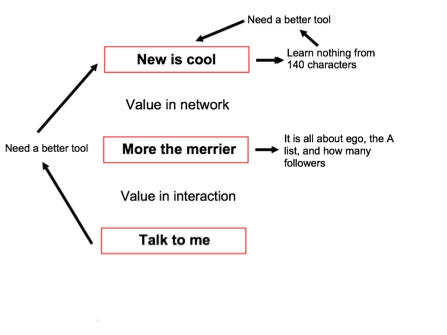I have operated at least one server pretty much since this was possible. My motivation for this commitment has varied. Early on, having my own server allowed me to do quite a few things others could not do. This is still the case in isolated areas. My research involves database driven interactivity and storage requirements I cannot duplicate with services provided by the university. Even some of the instructional strategies I employ are very cumbersome when using something like the Blackboard CMS. For example, creating and modifying linked web pages is not practical in Blackboard. The system does not allow modifications to one part of an interconnected system of pages. Some familiar with a CMS may question my claim. Try changing one page of a 40-50 page web site saved on a CMS. Blackboard, at least, wants to treat the entire site as a unit.
The last few days I have been experiencing some of the limitations of having a great deal of personal control. The server offering instructional materials for one of my courses and the development site for online content associated with our book has crashed over night. Temporarily losing the development site is not catastrophic, but students do get frustrated when course content is not available even if they happen to discover this is the situation at 2 in the morning.
At one time, I had hoped that most educators would each operate a simple server and it seemed that things were going in that direction. The Mac had a simple way to share web pages. You did not have to FTP content to a remote server, you just moved files into a folder on your desktop machine. Some things have changed. The assignment of static IPs is now less popular. Security concerns also seem more prevalent. You can still use any Mac as a server, but I know no one who actually does this.
I now have another option. I can rent server space at a reasonable price. The resources I offer at Learning Aloud are provided on rented space. I can do PHP and MySQL scripting, but I do not have to setup or maintain the server. This combination offers advantages.
There is an expression that often applies – I know just enough to be dangerous. I have learned some things operating a server. I know a little linux and to consider some of the exploits that hackers might apply (sql injection). However, when you don’t maintain a server on a daily basis you end up applying your time very inefficiently. I never completely understand what I am doing and I must expend a great deal of time and energy in trial and error. As the equipment I use (typically cast off Macs) changes and runs on different operating systems, what worked last time does not work this time. Critical files are located in different places and executing a statement on the command line from my old notes may not work this time. So, I can spend 8-10 hours over a weekend to get something working a couple of times a year or I can pay $10 a month to not have to worry about it. It would be nice not to have to pay anything, but those hours of labor have to be worth something even to me. This is now the decision. How important is it to have physical contact and control over the entire process?
— I located this post through bloglines that outlines issues in using the Mac as a server
18 total views

 So, I welcome you to test this model against your own experiences. If you have tried Twitter, which stage did you achieve?
So, I welcome you to test this model against your own experiences. If you have tried Twitter, which stage did you achieve?
You must be logged in to post a comment.